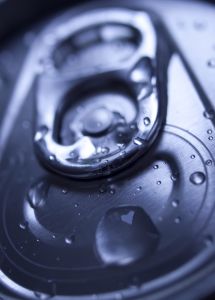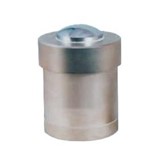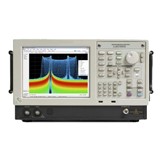Environmental experts have noted the similarities between soft drink bans and Australian bans of bottled water, citing the detriment of plastic PET bottles used in the manufacture of both soft drinks and bottled water.
Although they are under fire, soft drink manufacturers and bottled water manufacturers are expected to grow steadily over the next five years.
In 2012-13, obesity levels in Australia are expected to soar higher, with data from the Australian Bureau of Statistics showing almost one in four adult Australians is obese, up from one in five in 2006-07.
Testament to the Australian love affair with soft drinks, sales are expected to increase at an annualised 0.9 per cent in the five years through 2012-13.
Despite global economic uncertainty, low consumer sentiment and unfavourable weather conditions, the $3.5 billion dollar industry continues to draw consumer attention.
Manufacturers have sought to capitalise on the consumer trend towards healthier products and have introduced low-sugar product lines in an attempt to address these concerns.
Bottled water, on the other hand, remains under tough scrutiny, with several regions and universities already imposing bans on sales.
The rationale for this revolves around the environmental consequences of bottled water production, a substitute of the freely available and eco-friendly alternative — tap water.
Given every tonne of PET resin used to produce plastic bottles emits three tonnes of harmful emissions, manufacturers have attempted to cut costs and lower their carbon footprint by making bottles not only more cost efficient to produce, but also lighter and less resource intensive.
However, regulatory hurdles and varying levels of dissent among the general public have hurt sales of bottled water in the past few years, following calls for further bans across Australia. Despite this, returning consumer sentiment and sound macro fundamentals are expected to result in bottled water sales growing at an annualised 2.5 per cent over the five years through 2017-18.
While experts call for bans on soft drinks and bottled water, bottlers face favourable conditions from surging upstream producers. PET bottle manufacturers like Visy are increasingly innovative in production and scale efficiencies, taking advantage of their size to innovate and acquire. For example, revenue for Visy's PET segment increased by 9.0 per cent to $855.3 million for 2011-12 and has more than doubled in five years — testament to the growing trend in soft drink and bottled water sales.
Future hurdles for all beverage manufacturers, including soft drink and bottled water manufacturers, exist in consumers' growing awareness of health and environmental issues. The prevalent trend towards reusable goods will be a decisive factor in the bottling developments for beverage manufacturers and upstream industries.
Soft drink and bottled water industry players will need to reignite their innovative spark in sustainability and healthy habits if they are to remain profitable.







